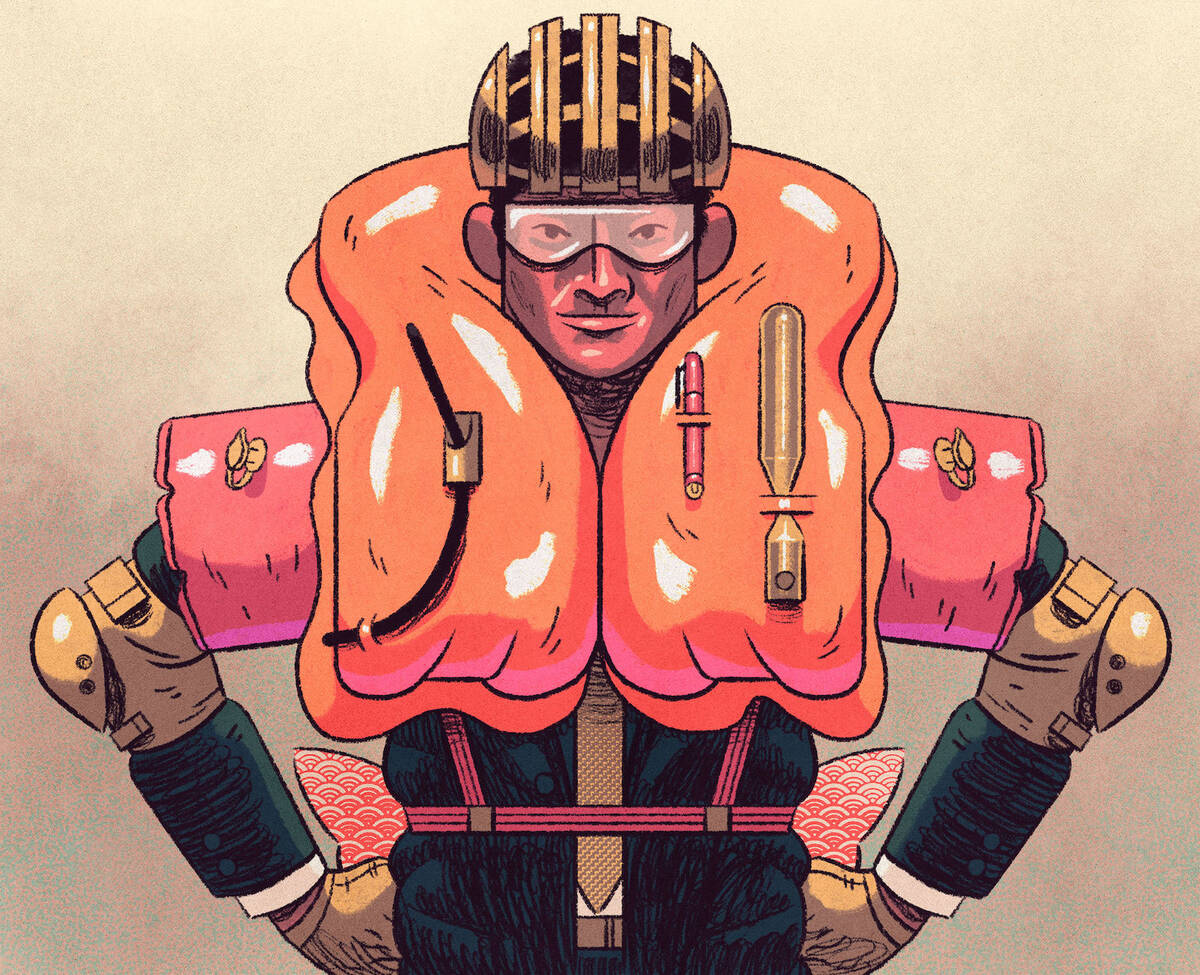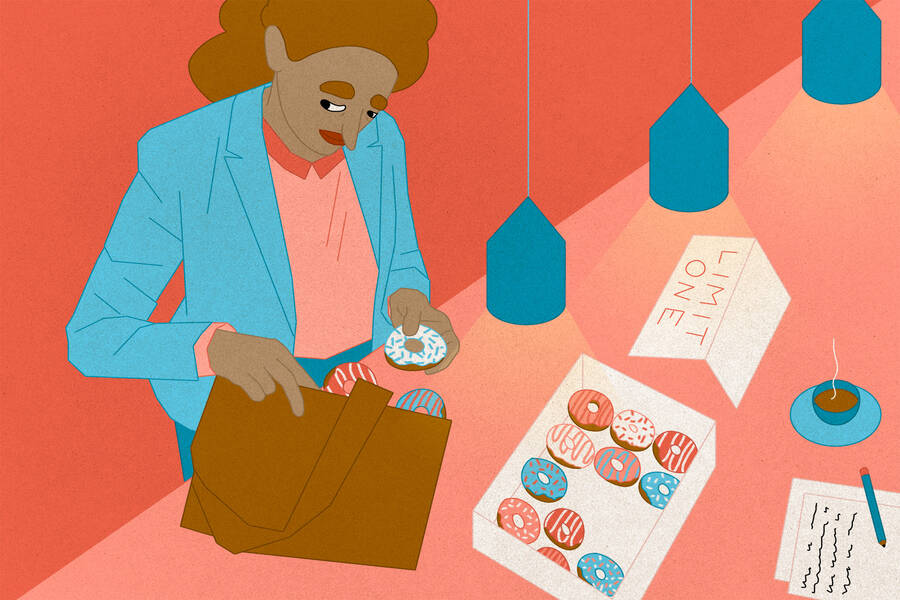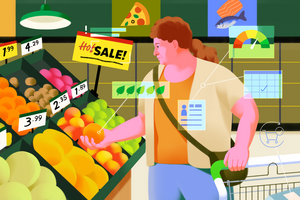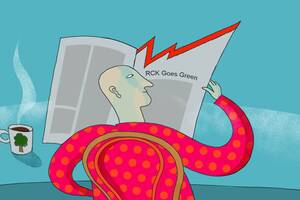Maybe you fear devastating diseases or untimely accidents. Perhaps you fear losing your job (or working in the same dreary job forever). Or maybe your biggest fear is that you won’t live up to your own lofty expectations or important obligations.
Whatever keeps you up at night, it is likely to shape your decision-making at critical moments. Here are some of our favorite studies from Kellogg faculty who tackle this tough—or perhaps, terrifying—topic.
The fear of learning that we might have a serious illness makes us less likely to get mammograms or use other kinds of diagnostic tools, according to research from Kellogg assistant professor of marketing Chethana Achar. After all, nobody wants bad news.
But if health providers can make detection—which is scary—seem more like prevention—which isn’t as scary—we may be more willing to use that diagnostic tool after all.
In one study, Achar and her colleagues recruited over 400 women online to read about a free tool, the National Cancer Institute’s online Breast Cancer Risk Assessment Tool (BCRAT), which detects someone’s risk of developing breast cancer. For some women, the BCRAT was framed as a mode of detection, while for other women it was framed as a detection tool that helped in preventing breast cancer.
Then participants did a writing exercise where they wrote about either how or why they might use BCRAT. The researchers analyzed the number of fear-related words that participants used and found that “when detection is framed as prevention, the amount of fear expressed by participants is far lower,” Achar says.
Furthermore, after the writing exercise, participants were given the opportunity to actually use BCRAT. Results showed that when the detection tool was framed in a more preventative light, participants used it at a higher rate.
A lot of people are nervous about their career trajectories—and their paychecks—and executives are no exception.
Research from finance professor David Matsa and his colleague Todd Gormley finds that top managers sometimes shun risky, but potentially rewarding, investments that might deliver considerable value to their shareholders. Why? They want to preserve wealth from their compensation packages that’s tied to the firm, as well as the sheen of success that will land them their next job.
The researchers found that career concerns led executives to make safe, diversification-focused acquisitions that did not create value for shareholders. This included overpaying for large and unrelated “cash cows” with healthy profits, rather than making more strategic purchases.
This was particularly true of managers who were protected by state laws from the threat of a hostile takeover, giving them more wiggle room to avoid taking risks.
Consistent with the idea that the protected managers are playing it safe, the firms that did the bulk of the diversification-focused acquiring tended to be at a higher risk of failing, the researchers found. Moreover, their managers tended to have larger ownership stakes in their companies—putting more of their personal finances at risk—and to be under the age of 55, with a longer career still ahead of them.
Executives may be risk-averse, but to be honest, so are the rest of us: people have an outsized fear of losing what they already have.
It’s well documented, for instance, that our unhappiness at losing ten dollars is much greater than our happiness at winning the same sum.
So why, then, do people nonetheless do risky things all the time—things much riskier than placing a ten-dollar bet?
Marketing professor Derek Rucker and his colleague, David Gal, had a theory: courage may be a key motivator. That is, for many important life decisions, making a risky choice takes courage—and courageousness, prized by nearly all cultures, is something we desire for ourselves, too.
Indeed, across several studies, the researchers found that the motivation to be courageous can lead people toward riskier options—but only to the extent the options allow one to actually feel courageous (e.g., when the stakes felt meaningful or life-altering). For instance, participants who’d thought about courage were more likely to choose a risky medical treatment—but were no more likely to take a trivial financial bet.
“When people see an opportunity to be courageous, such an opportunity can actually lead to a preference for the riskier option,” says Rucker.
Okay, choosing an investment portfolio doesn’t generally elicit fear. But we couldn’t not mention a study from finance professor Dimitris Papanikolaou that finds that anxiety about missing out on the next big opportunity—essentially, FOMO—pushes investors to overpay for the startups with the most transformative or disruptive potential.
“One of the most enduring puzzles in finance is this fact that so-called ‘growth stocks’ are typically overvalued relative to some measure of fundamentals, and have very low returns,” says Papanikolaou. “This pattern has been ongoing for about a hundred years—as far back as we have stock market data.”
Papanikolaou and his colleagues built a model that made a novel assumption: while innovation is usually a net economic positive, it does not shower benefits onto all participants in the economy equally. That is, while the “winning” innovator will make a fortune—along with any investors lucky enough to choose their company—those who did not bet on the company will lose out in a big way.
The output from their model matched up well to real economic data from the past century—implying that their assumption about investor fears could be correct.
“If people have this fear of missing out or being left behind, they will view investing in something like Tesla as a way of hedging against future disruptions and inequality,” he explains, comparing the investment in growth stocks to, essentially, insurance for your pocketbook.
Some of our deepest-held anxieties aren’t about terrible things happening to us, but rather about our own ability to juggle our various obligations and aspirations.
Consider working parents. A study by Cynthia Wang, a clinical professor of management and organizations, finds that that working parents are keenly vulnerable to fears that they aren’t focusing enough on child-rearing. These fears can be triggered by scheduling conflicts, unkind comments, or the realization that they’ve let the ball drop at home.
“Parents are always questioning whether they’re being a good parent, and there’s so much societal pressure about the ‘right’ way to parent. All these pressures put so much burden on us that shame becomes a prevalent emotion,” says Wang.
Wang and her colleagues had some working parents read about (fictitious) research suggesting that working parents are less involved in their children’s lives than nonworking parents; the rest read other research (also fictitious) suggesting that working parents were just as involved as nonworking parents. Those who read results that threatened their identities as working parents by suggesting they are less involved reported feeling higher levels of shame—and lower levels of work productivity.
But a related study also revealed something else: parents who felt more shame from the parental-identity threat also invested more energy into parenting. In short, “we make up for the shame that we’re feeling by spending more quality time with our kids,” Wang explains.
“We don’t think of buying a traditional Oreo as a way to bring control into our life, but that’s apparently how people are behaving,” says marketing professor Gregory Carpenter. Read more here.




